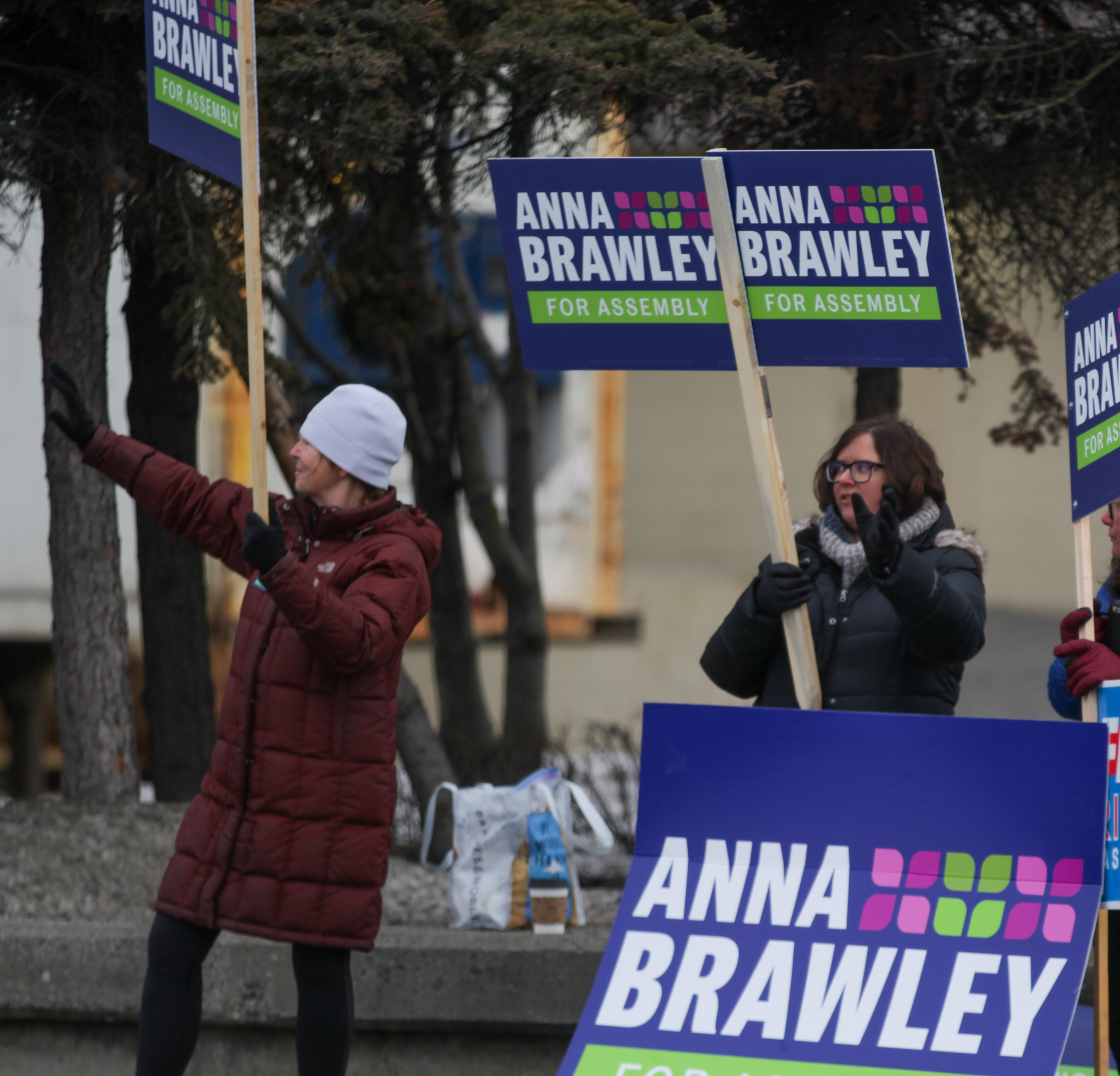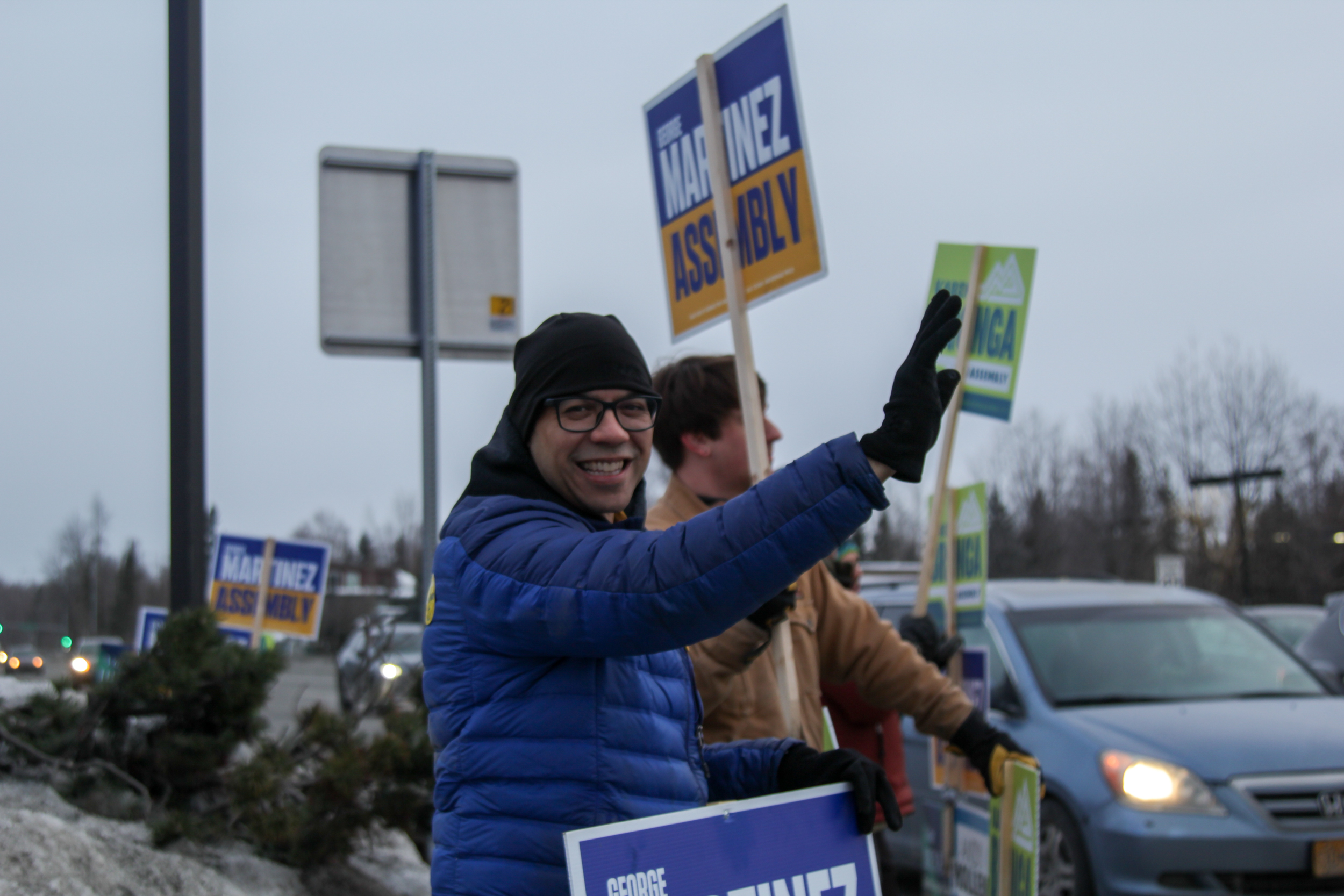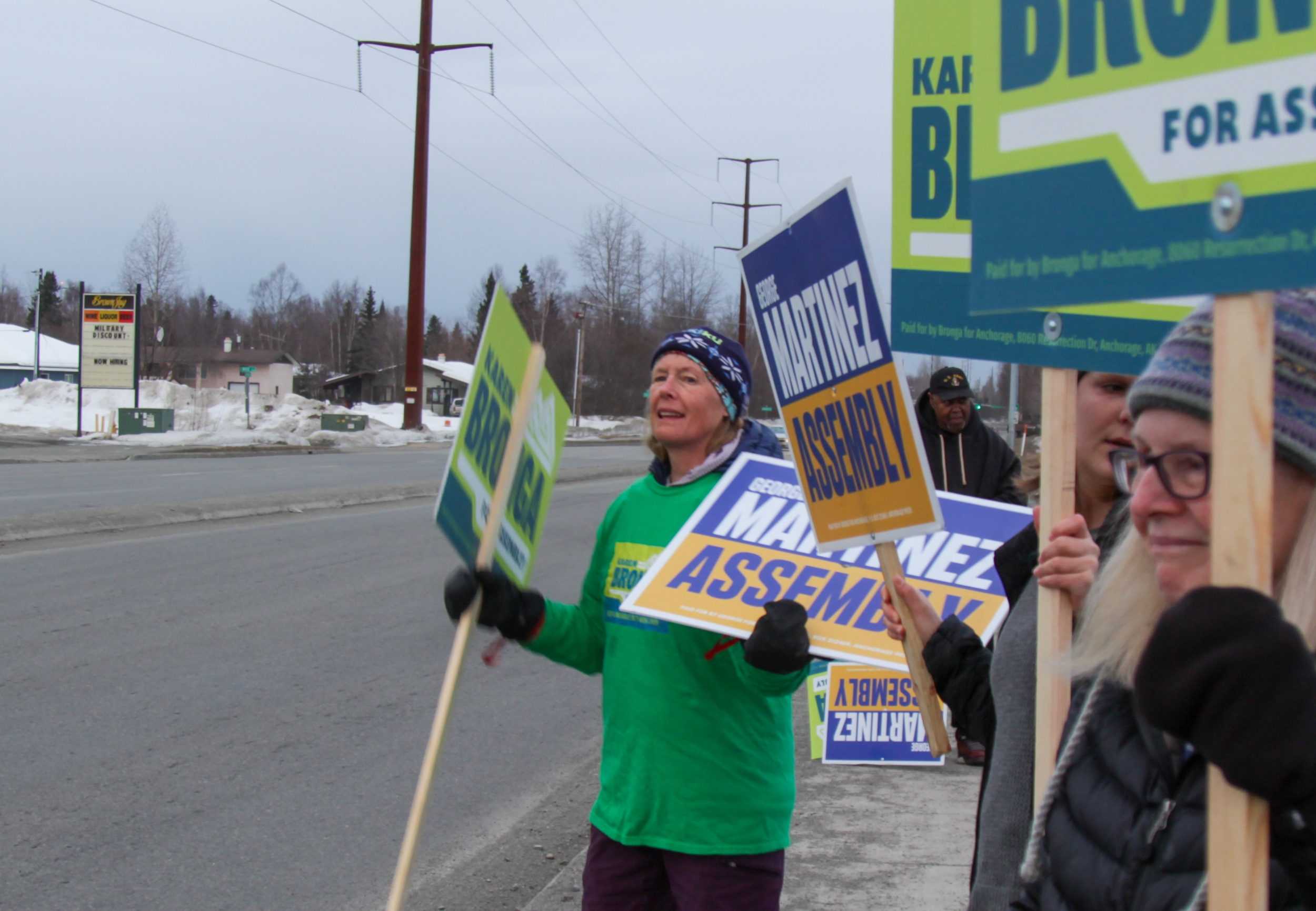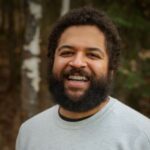
Results are still trickling in for Anchorage’s municipal election, but the margins in the Anchorage Assembly races are wide.
The body is set to keep its mostly progressive supermajority. That means it will maintain its power to override conservative Mayor Dave Bronson’s vetoes.
But the candidates poised to become new Assembly members say they’d like to turn the partisanship down, and the cooperation up.
“The ideology is that we want the city to work, as opposed to a specific political ideology,” said West Anchorage candidate Anna Brawley. “And so that’s another thing I heard loud and clear from a lot of people, is just this idea that they want solutions that work, that are practical.”

Brawley said voters are tired of partisan bickering. She campaigned with the support from many incumbents in the body’s current supermajority, including Austin Quinn-Davidson, who did not seek reelection and who she’ll replace.
Brawley will be one of five newcomers to the 12-member Anchorage Assembly. Only one of the newcomers is conservative. In interviews, many named similar top priorities: Housing, homelessness, and public safety. Plus, looking for ways for the body to come together.
“Not everything is obviously right or left,” said Scott Myers, who currently leads in the race to represent Eagle River on the Assembly. “There’s a lot of nonpartisan issues on the Assembly. So yeah, we’ll absolutely work together.”
Myers is the sole conservative elected to the Assembly this year, replacing Republican firebrand Jamie Allard, who was elected to the state House. As far as top priorities, he’s concerned with the lack of available housing due to several slow building seasons. Other issues include the city’s homelessness crisis, as well as its aging port.
“You know, it is the Port of Anchorage, but it’s also the Port of Alaska,” he said. “And I don’t know if you’ve been down there, but it is literally rotten, and that thing needs a complete overhaul. So both of those issues, homelessness and the port, the state needs to take a larger role, in my opinion.”

George Martinez is set to become one of two new East Anchorage Assembly members, replacing term-limited Pete Petersen. According to national progressive political group Latino Victory Fund, he’s the first Afro-Latino ever elected to Anchorage’s legislative body.
Martinez said his campaign was less focused on the often-fraught relationship between the Assembly and mayor, and more on providing a positive vision for his part of town.
“For me, that positive vision is a connected, safe and thriving community,” he said. “Where our economy is growing, our neighborhoods are flourishing and our families are healthy and prosperous.”
That’s not to say he doesn’t have concerns with the Bronson administration. He cited two issues specifically in his district: the last-minute movement of homeless residents to Centennial Park last summer, and the administration allocating millions of dollars to a navigation center and shelter project without Assembly approval.
Martinez previously worked as a special assistant to former Mayor Ethan Berkowitz. He said he hopes to restore trust in local government.
“Voters want competent municipal government that will be responsive, be responsible and deliver the results that the investors, i.e. the taxpayers, have an expectation for,” Martinez said.
Karen Bronga is a fellow incoming East Anchorage member, elected to fill the last two years of Forrest Dunbar’s term. Bronga said, on the campaign trail, she heard concerns over empty office buildings, and thinks they could be used to address homeless and housing issues.
“Could we repurpose some of these empty office buildings to housing?” Bronga said. “I am not a big fan of building new structures when we have so many sitting empty, and I heard that from people that I talk to all the time.”

Other candidates have other housing ideas, too.
Brawley, a city planner, said she favors a broad approach, tackling at housing issues from several angles.
“It affects so many things, from affordable housing and homelessness up to senior housing,” she said. “Families looking for places to live, people being able to pay rent in our city. Those kinds of things.”
Meanwhile, Martinez thinks focusing on job opportunities could be the best way to help those struggling with homelessness.
While housing, homelessness and Anchorage’s economy are priorities that unite candidates across the municipality, there are still local issues they’d like to fix as well. Bronga said East Anchorage has a series of trails and bike paths that need to be addressed.
“The further east you go in Anchorage, the pedestrian routes and bicycle routes are more and more sketchy, and we’ve got a huge group of people that don’t own cars,” Bronga said.
Meanwhile, Zac Johnson, a moderate who’s set to represent South Anchorage, is concerned over public safety, especially on the Hillside.
“I’m concerned about the wildfire threat, living here on the Hillside, and a lot of my neighbors are,” he said. “So talking about what we can mitigate about that. And then public safety across the board. APD thinks they’re going to be down 50 officers this summer. That’s going to have real impact on the level of service they’re able to provide.”
Johnson will take over for the seat held by Assembly chair Suzanne LaFrance, who opted not to run for reelection. South Anchorage tends to lean conservative, with Randy Sulte ousting moderate John Weddleton from the Assembly last year.
In general, Johnson said he has been in favor of many of the decisions made by the Assembly majority in recent years. But he said he made sure to reach out to officials across the political spectrum — including LaFrance, Weddleton and Sulte — to prepare for the elected role.
“Name an Assembly member and I’ve probably looked for an opportunity to have that sort of conversation with them,” he said. “I think for any job, you want to talk with the people that are doing it to learn from them as best you can.”
The election results will be certified on April 25.
Wesley Early covers Anchorage life and city politics for Alaska Public Media. Reach him at wearly@alaskapublic.org and follow him on X at @wesley_early. Read more about Wesley here.





